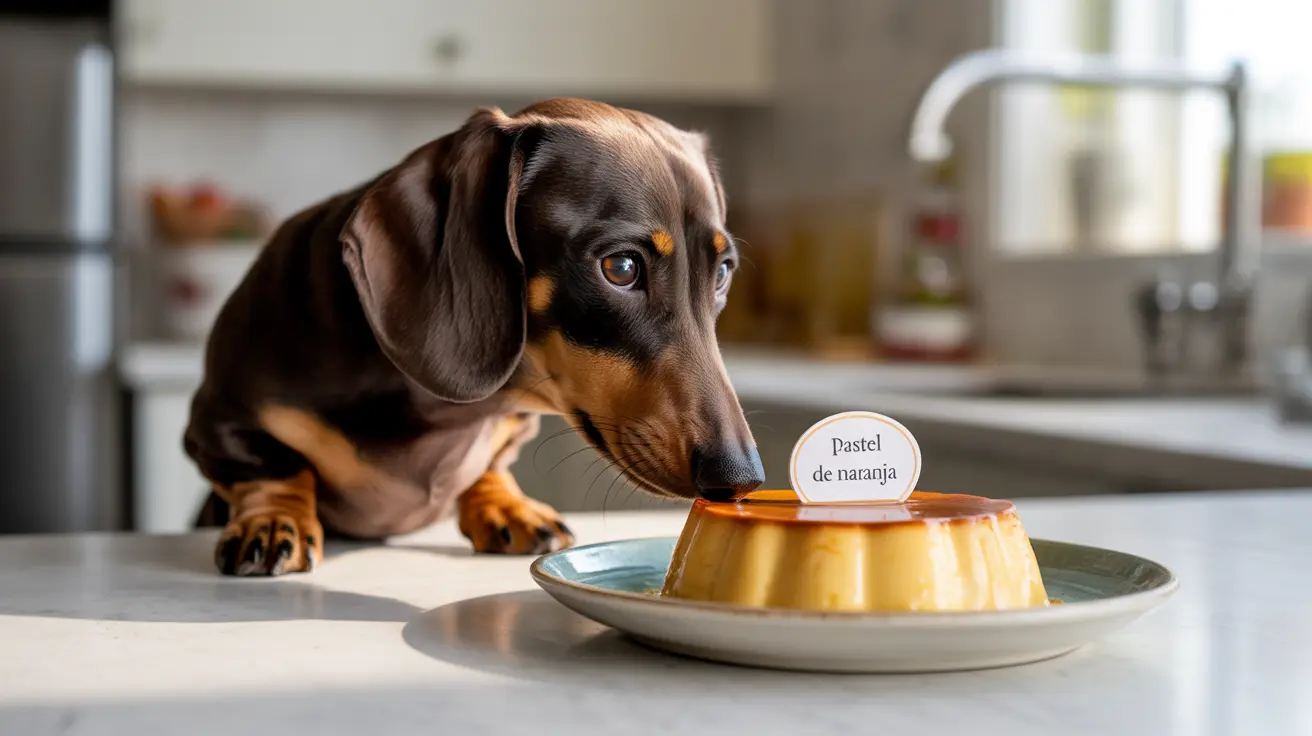If you're wondering whether dogs can eat flan, the short answer is no - this creamy custard dessert isn't safe or healthy for your canine companion. While a tiny taste might not cause immediate harm, flan contains several ingredients that can be problematic or even dangerous for dogs.
In this comprehensive guide, we'll explore why flan should be kept away from your four-legged friend and what to do if your dog accidentally consumes this dessert. We'll also provide safer alternatives to satisfy your pet's sweet tooth.
Understanding the Dangers of Flan for Dogs
Flan's primary ingredients - eggs, milk, cream, sugar, and caramel - create a perfect storm of potential health issues for dogs. Let's break down why each component poses risks:
Dairy Components and Lactose Intolerance
Most adult dogs are lactose intolerant, lacking the enzyme needed to properly digest dairy products. The high milk and cream content in flan can cause:
- Severe stomach upset
- Diarrhea
- Vomiting
- Abdominal pain
- Gas and bloating
Sugar Content Concerns
The high sugar content in flan, including both refined sugar and caramel, can lead to serious health issues:
- Dental problems and tooth decay
- Weight gain and obesity
- Diabetes risk
- Inflammatory responses
- Pancreatitis
Hidden Dangers: Additional Ingredients
Vanilla Extract
The alcohol content in vanilla extract, while minimal, can be toxic to dogs, especially smaller breeds. Symptoms of vanilla extract toxicity include:
- Lethargy
- Confusion
- Decreased heart rate
- Vomiting
Artificial Sweeteners
Some flan recipes may contain xylitol, an artificial sweetener that's extremely toxic to dogs. Even small amounts can cause:
- Rapid blood sugar drops
- Seizures
- Liver failure
- Potentially fatal complications
What to Do If Your Dog Eats Flan
If your dog consumes flan, take these steps:
- Assess the amount eaten
- Check the ingredients list for xylitol
- Monitor for immediate symptoms
- Contact your veterinarian if you notice concerning signs
Safe Alternatives to Flan for Dogs
Instead of flan, consider these dog-friendly treats:
- Plain, cooked eggs (without seasonings)
- Small pieces of fresh apple (no seeds)
- Frozen plain yogurt designed for dogs
- Pure pumpkin puree
- Commercial dog-specific dessert treats
Frequently Asked Questions
Can dogs safely eat flan, and what are the risks of feeding it to them?
No, dogs should not eat flan. The combination of dairy, sugar, and potentially toxic ingredients makes it unsafe, with risks ranging from digestive upset to more serious health complications.
Why is the dairy in flan problematic for most dogs?
Most adult dogs are lactose intolerant, lacking the necessary enzymes to digest dairy properly. This can lead to digestive issues including diarrhea, vomiting, and stomach pain.
What harmful ingredients in flan should dog owners watch out for?
Watch out for vanilla extract (contains alcohol), xylitol (artificial sweetener), high sugar content, and dairy products. These ingredients can cause various health issues from mild discomfort to severe toxicity.
What symptoms might my dog show if they eat flan by accident?
Common symptoms include vomiting, diarrhea, lethargy, bloating, and gastric distress. If the flan contains xylitol, more serious symptoms like seizures or collapse may occur.
What are some healthy, dog-friendly dessert alternatives to flan?
Safe alternatives include dog-specific frozen treats, plain pumpkin puree, small pieces of dog-safe fruits, and commercial dog desserts formulated specifically for canine consumption.
Conclusion
While flan might be a delicious dessert for humans, it's best to keep it away from your dog. The risks far outweigh any momentary enjoyment your pet might get from this sweet treat. Instead, stick to dog-specific treats and desserts that are formulated with your pet's health and safety in mind.






